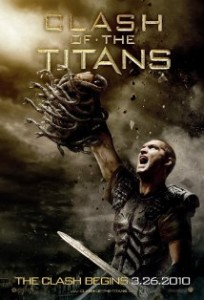When people began to multiply on the face of the ground, and daughters were born to them, the sons of God saw that they were fair; and they took wives for themselves of all that they chose. Then the Lord said, ‘My spirit shall not abide in mortals for ever, for they are flesh; their days shall be one hundred and twenty years.’ The Nephilim were on the earth in those days—and also afterwards—when the sons of God went in to the daughters of humans, who bore children to them. These were the heroes that were of old, warriors of renown.
The Lord saw that the wickedness of humankind was great in the earth, and that every inclination of the thoughts of their hearts was only evil continually. And the Lord was sorry that he had made humankind on the earth, and it grieved him to his heart. So the Lord said, ‘I will blot out from the earth the human beings I have created—people together with animals and creeping things and birds of the air, for I am sorry that I have made them.’ But Noah found favour in the sight of the Lord.
I apologies for taking so long to update. I have been struggling with this passage and what to say about it. The amount of questions that come from reading it just seemed to increase each time that I come back to it. In many ways it felt like I was reading the teaser for a new program on Space.
In this passage we have the sons of God who take human wives and have children. The children born are the heroes of old. Sounds very similar to Hercules and much of ancient Greek mythology. God, the high God has sons who are also divine that wonder the earth and take human sexual partners.
Also The Nephilim were on the earth in those days. The Nephilim are mythical giants. Perhaps similar to the Titans from Greek mythology, but that is nothing but shear speculation on my part.
I feel as though I should be getting my popcorn out and a giant diet Coke, sitting back and getting ready to watch the new screening of The Clash of the Titans.  This is followed up with God watching humanity, seeing the wickedness of humans and deciding to blot out all of creation. Except that Noah has found favor with God.
This is followed up with God watching humanity, seeing the wickedness of humans and deciding to blot out all of creation. Except that Noah has found favor with God.
Clearly those in ancient Israel did not see God has omniscient. God did not or could not foresee the wickedness of humanity. But this does explain previous passages where God spoke in the plural. God clearly was referring to his divine sons when speaking in the plural, perhaps even to a divine council of gods over which Yahweh was the supreme ruler.
Obviously this is pre-Christian understanding of the world, but what should be troubling for Christians in this passage is that according to doctrine, Jesus is the only son of God. Except here we have scripture that clearly stipulates to their being many sons of God. Of course this does not change that Jesus Christ is the first born of all creation and the first born of the dead. Those pieces of doctrine are unaffected by this passage.
The next thing we grapple with is that God is sorry that he had made humanity. Sorry implies that God is less than perfect. God made a mistake, or so he seems to be admitting.
Frankly, this passage should trouble Christians greatly because it challenges some of our basic assumptions about God. What it does highlights for us though is the mythological nature of Genesis and the first five books of the bible really. These foundational myths and stories are exactly that, stories. It is difficult for many Christians to accept that maybe God didn’t create the world according to the tales in Genesis. Having said that, that doesn’t preclude God from still being the creator.
Growing to a mature faith in God we come to realize that faith doesn’t provide certainty. Faith still is the confident belief or trust in a person, idea, or thing that is not based on proof. But we need to mix our faith with reason and understanding that within these stories is God’s revealed truth, maybe not literal truth but allegorical, mythological, eschatological and so on.
The sons of God took human wives and giants once roamed the earth. What does this tell us of our world and God’s action in it? To that I have no answer today, but a renewed desire to keep reading scripture in hopes that the answer will soon be found.
